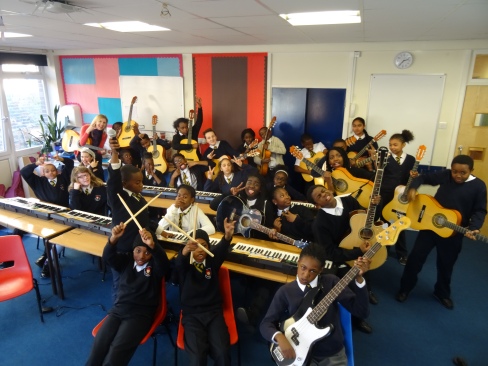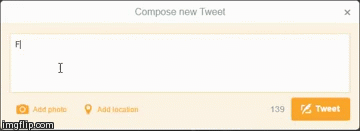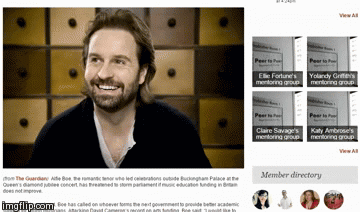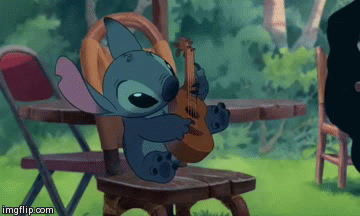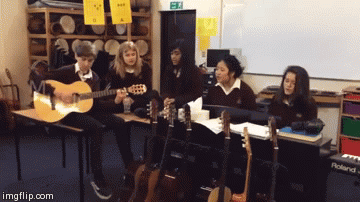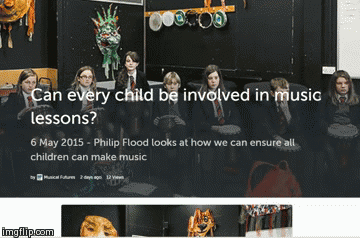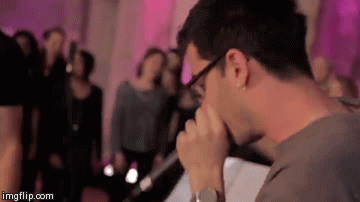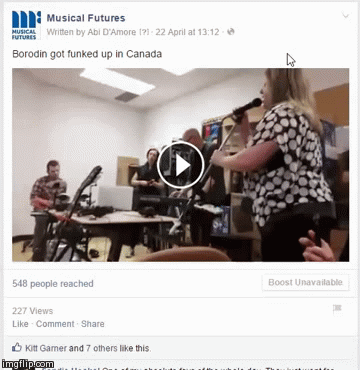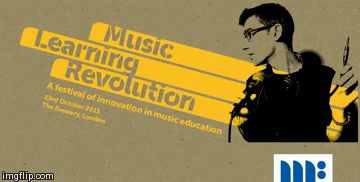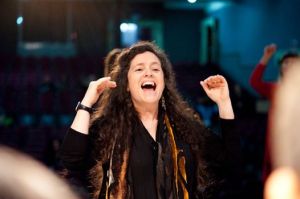 Kate Campbell-Green is Primary Music Curriculum Advisor at Tameside Music Service. Kate was chosen to lead one of the Open Space Sessions at this year’s Music Learning Revolution. Her practical workshop will focus on leading a transition project from years 6 to 7 and beyond, here she talks about how she does that in practice and why she believes it is crucial to burn the bridge…
Kate Campbell-Green is Primary Music Curriculum Advisor at Tameside Music Service. Kate was chosen to lead one of the Open Space Sessions at this year’s Music Learning Revolution. Her practical workshop will focus on leading a transition project from years 6 to 7 and beyond, here she talks about how she does that in practice and why she believes it is crucial to burn the bridge…
One of the heartbreaking scenes I witness time and again is that of the ‘bridging unit’ taught in the first term of year 7. If you are unfamiliar with what this is it usually consists of a half term scheme of work which explains and explores the interrelated dimensions (elements) of music. There are two opposing situations where I find it disheartening: firstly that the bridging unit is necessary as children have no practical or other experience of such terminology before Secondary School; secondly, and perhaps even more distressing, the bridging unit is unnecessary as children have received a robust musical education before Year 7. We are now working in a time of collaboration in music education and, when this is exploited to its full extent it can lead to the abolition of the bridging unit and instead towards a bright new future of continuation and progression.
Knowledge is power: Data can be collated from some music services and/or schools which will inform you which schools have been buying in curriculum support from them. This is where a qualified teacher will deliver the music curriculum to primary schools and for many services this is a significant chunk of their yearly income. You can also find out who plays an instrument, their standard and whether they have played an instrument as part of Whole Class Ensemble teaching which usually lasts a year. You may even be able to find out what the outcomes were of this year. The majority of ukuleles and guitars I teach as a whole class know how to read tab and what their basic open chords are before they set foot in Big School. They will all certainly know the interrelated dimensions and how to use them to perform, compose or analyse of a piece of music. Just think how you can use this to inform your planning to make it relevant and engaging, not to mention being pitched at the right level from the off.
Flaunt your skills: If your school and the feeder school are supportive, spend some time in your feeder schools, whether teaching on a regular/ad hoc basis, conducting an ensemble there, inviting them to attend your own transition ensemble for years 5-7 or leading assemblies and performances with children from your school to inspire and motivate those in your feeder primary school. Or how about engaging with a transition project? Just try it one year, work with them before they come to Secondary School and they might just surprise you. Think how much more you could do with them from Year 7 and how much more they will grow as musicians with you adopting an informed approach to nurture their talent.
What: Music Learning Revolution
When: 23rd October 2015, 9.30 – 5pm
Where: The Brewery
Cost: £150+VAT; Bring Your Boss deal (Two tickets for £200 for you and your line manager or headteacher to attend), group discount (£110 per ticket)
Who is it for: secondary music teachers, primary teachers (specialist and non-specialist), school and sector leaders
Key highlights: Web technology for distance music learning | funding solutions for music departments | applying workshopping at KS4 | making classrooms inclusive | assessing music musically | primary-secondary transition | early years music making | music and animation | live music coding | mash-ups, beatboxing and urban voices | Musical Futures new approach to primary music | Massed beatbox choir led by Shlomo
Contact: Zoe.coakley@musicalfutures.org, @musiclearnrev

